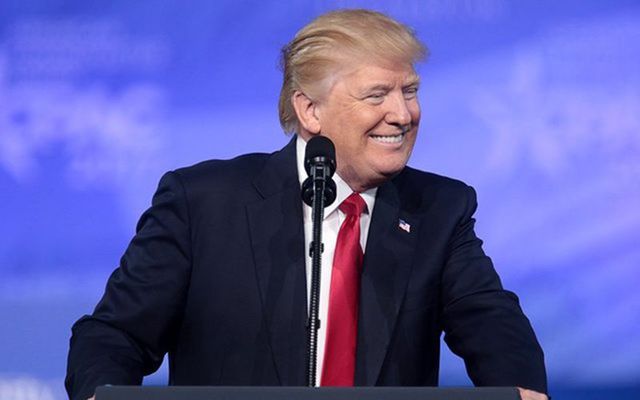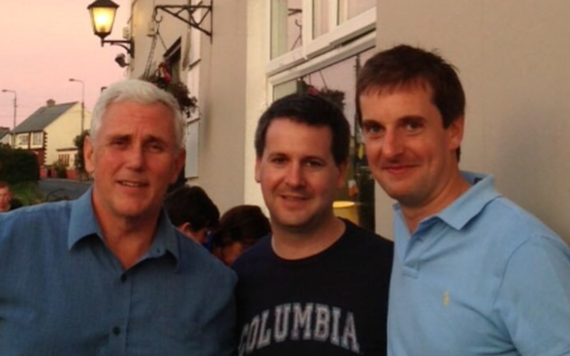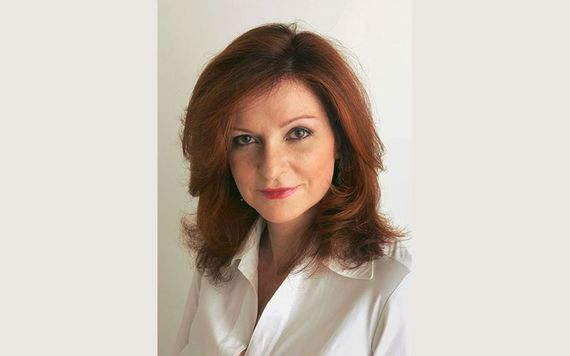Yet now the Trump White House is chockablock with Irish names – including Vice President Mike Pence, whose grandfather immigrated from Ireland in 1923 to Chicago and became a bus driver. The grandfather was a Democrat and Pence’s parents and five siblings idolized John Kennedy. But Pence had a religious experience in college and became an evangelical Christian and a Republican.
So how do we explain this narrative arc?
When Irish immigrants got off the boat, seeking out the parish and the precinct and the pub, they found a natural home with the Democratic party in the big cities, buoyed by the social services that kept them going and helped them make it to the next day in America.
They became policemen and firemen and voted how the ward bosses and union bosses ordered and began to get involved politics themselves on the Democratic side, having the advantage of speaking the mother tongue as they moved into the mainstream.
In the mid-19th century when Tammany Hall, the Democratic machine, was reigning, a New York diarist wrote: “our rulers are partly American scoundrels and partly Celtic scoundrels. The Celts are predominant, however, and we submit to the rod and scepter of Maguires and O’Tooles and O’Shanes.’’
I grew up in a working-class family that reflected the political transformation that many Irish Catholics in America lived through:
My father, Mike Dowd, a police inspector born in Ballyvaughan in Clare, was so proud of Al Smith, the first Catholic nominee of a party -- elevated by the Democrats in 1928 when Smith was the half-Irish, half-Italian governor of New York -- that my Dad kept a big green scrapbook of all the newspaper coverage.
In 1959, when a skinny young senator named John F. Kennedy took on Richard Nixon, my dad wasn’t sure at first. He was in charge of security at the Senate and knew both men. He liked Richard Nixon.
But then Kennedy had to go make a speech in Dallas to appease the Protestant bishops who thought that there would be a tunnel between the White House and the Vatican if JFK was elected, that the pope would be calling the shots. My father hated the fact that JFK had to grovel about his religion. So, he switched to back Kennedy
The Irish Catholic vote started drifting away in 1956, when Adlai Stevenson, known as an egghead, ran against Eisenhower. As Daniel Patrick Moynihan wrote in a letter to one of his Harvard professors about the working class and lower class Irish vote in New York that year, “I found to my shock that it was not the Republicans who had rejected Adlai Stevenson, but the Democrats,” who “had profoundly lost confidence in the principles of foreign policy, even of public and social policy which most liberals regard as essentially self-evident and substantially unquestioned.
Stevenson had, in fact, attracted a significant vote from the professional and upper elements that normally vote Republican. But he lost Brooklyn and the Bronx in droves.”
But after “the dreary years of McCarthyism,’’ as Moynihan put it, JFK brought the Irish vote back. Even though Kennedy and Stevenson stood for the same things. Moynihan wrote, “they trust Jack, they like him, they want him to win.” The memory of al smith, Moynihan said, was still “cruelly alive” and Moynihan even suggested that the support for Joe McCarthy’s ruthless attack on the WASP establishment and the pin-striped State Department was really a kind of hidden, belated revenge for Al Smith’s loss to Franklin Roosevelt, whom the Irish considered a snot-nosed Yankee from Groton and Harvard.
The high-water mark of Irish Catholic involvement in American politics was 1960. Kennedy was elected president. John McCormack was the speaker. Mike Mansfield, with both parents born in Ireland, was the Democratic Senate Majority Leader.
As the historian, Jon Meacham told me, “Jack Kennedy was this movie-star, good-looking guy who suddenly made being Irish Catholic sexy.’’
But then came that fateful year 1968. Bobby Kennedy got assassinated. Anti-Vietnam demonstrations on campus and hippie flower power blossomed. Chicago’s mayor Richard Daley, the biggest Irish power broker of the 50s and early 60s, presided over violent clashes between war protesters and police at the 1968 convention. That is where Mayor Daley gave his famous malapropism: “the policeman is not here to create disorder. The policeman is here to preserve disorder.”
The Irish did not like hearing soldiers called “baby killers” and policeman called “pigs.” As the daughter of a cop, I can tell you that from personal experience.
Many Irish Americans felt the country was too permissive and that integration was happening too fast. They couldn’t relate to George McGovern and his coterie of long-haired movie stars like Warren Beatty and Jane Fonda.
By 1970, as Moynihan wrote in his seminal book “beyond the melting pot:” “the mass of the Irish have left the working class, and in considerable measure the democratic party as well.’’
Richard Nixon did very well with the Irish American voters in 1972 by getting northern ethnic voters uneasy about civil rights and a lot of social issues and chipping them away from their previous democratic allegiance.
In 1973, Roe versus Wade drove more Irish Americans into the Republican embrace.
As Andrew O’Hehir wrote, many Irish Americans, who arrived in America as despised outsiders, traded the politics of class for the politics of race, moving from the new deal coalition to Archie bunker-land, from FDR to Reagan to Donald Trump. After absorbing so much bigotry themselves, the Irish developed a strain of bigotry. After suffering through the pain of the “no Irish need apply” era, many decided they wanted to pull the drawbridge up after them.
As the history news network put it, the loudmouth likes of Bill O’Reilly, Sean Hannity, Pat Buchanan and Steve Bannon are direct descendants from Joe McCarthy, with his gift for lurid innuendo and theatrical outrage against the conventional power elites. Buchanan gave his incendiary wave-the-pitchforks “culture war” speech in at the 1992 Republican convention. (Liberal columnist Molly Ivans quipped that it probably sounded better in the original German.) And Bannon, who saber-rattles about a war with China, got out those same anti-elitist pitchforks for the trump revolution in 2016. Both Buchanan and Bannon have a strong identification with the Confederacy. Bannon, who grew up in Richmond as a self-described “Kennedy freak,” calls himself “a son of the south” Buchanan has a life-size portrait of the Confederate general Robert E. Lee in his home. You can draw a line from McCarthy’s heinous fabricated list of 273 communist names in the state department to Donald Trump’s heinous fabricated birther attack on Barack Obama, implying that he was a Kenyan Muslim infiltrator.
Robert Schmuhl, a professor of Irish studies at Notre Dame, described it to me this way: “As Irish Americans came into clover economically, many decided to abandon the Democratic Party. They became more conservative and in the twinkling of a generation, allegiances shifted from John Kennedy to Ronald Reagan for a sizable number of Irish. Add to that the pro-choice outlook of a majority of Democrats, and you can see why Irish Catholics turned their backs on the party that had been their ethnic political home since the time of the great hunger in the middle of the 19th century.”
If liberal JFK was “peak Irish,’’ the right-wing demagogue Joe McCarthy was the nadir. Even though the two men were friends and McCarthy went on dates with two of Jack’s sisters and hired Bobby Kennedy as a staff lawyer for his Senate subcommittee on investigations into communists in Hollywood and the state department.
Then-senator Jack Kennedy stayed in the hospital after back surgery longer than he needed to just so he could avoid the Senate vote to censure McCarthy.
Twenty years after JFK, things had flipped. The next Irish president, Ronald Reagan, was a Protestant and a Republican. The National Review, the leading conservative magazine, was led by William F Buckley. Reagan formed a good working relationship with the Democratic speaker of the house, Tip O’Neill, just a couple of Irish boyos.
My dad had passed away by then, but my mom followed Reagan into the Republican Party. She was a fan girl. She loved everything about President Reagan – his optimism, his wit, his tough-on-crime, patriotic message, the way he looked in a tuxedo. Jimmy Carter won the evangelicals, but Reagan split the Catholic vote. Reagan Democrats were born.
Reagan’s great-grandfather was from Ballyporeen in Tipperary but he played down his Irish roots, preferring to be seen as an English WASP when he was running for president. But during his presidency, the tie between Reagan and the Irish was so strong that when they built the Reagan library, they dismantled the pub in Ballyporeen where Reagan drank a Smithwick’s ale and moved it piece by piece, including the beer taps, to the Reagan library in Simi Valley, California.
Bill Clinton played a decisive role in achieving peace in Northern Ireland and had a lot of top Irish advisers – even though he never did manage to track down any relatives in Ireland.
President Obama traced his mother’s family back to great-great-great grandfather Falmouth Kearney, a shoemaker in Moneyball who immigrated to Ohio in 1805. Obama also had a lot of Irish names in his top circle: among joe Biden, Bill Daley, Denis McDonagh, Shailagh Murray, John Brennan, Jake Sullivan and the flame-haired flame-thrower Samantha Power.
Donald Trump’s mother was a theatrical strawberry blonde from the Hebrides in Scotland who once asked, “what kind of son have I created?” He has had just as many Irish around him: the departed Steve Bannon and Michael Flynn, and the remaining pence, John Kelly, Kellyanne Conway, and Mick Mulvaney. And his allies in Congress, Paul Ryan and Kevin McCarthy.
Another odd Irish connection comes from Trump’s once lover and now foe, porn star Stormy Daniels, who owns a horse bred in Wicklow called “Cooley Renaissance Man”.
The gelding made its movie debut with stormy in a porn film called “Unbridled” about “the heartbreaking world of equestrian competition.’’
As Eileen Markey wrote in the New Republic: "The history of Irish America, famished and haunted, is filled with characters who looked outward from their Irishness, who stood, sometimes fiercely, for the outsider and the exploited, who could see their plight in the struggles of other peoples. Yet many Irish-Americans have adopted Trump’s brand of nativism, “as well as an every-man-for-himself faith in the market and a tight-heartedness that would have been anathema to our grandparents.”
Trump and Bill O’Reilly are still pals. They like to angrily drink vanilla milkshakes together. And the pugnacious Sean Hannity, an anchor on Fox News, is now considered Trump’s top adviser outside of his family. He calls the president every night after his show, so they can gossip and discuss something of supreme importance to both of them: ratings.
There have been comparisons made between Donald Trump and Joe McCarthy and not just because both used the infamous Roy Cohn as a lawyer.
Consider the way Jon Meacham described Joe McCarthy in his new book, “the soul of America: the battle for our better angels:”
“McCarthy was a master of false charges, of conspiracy-tinged rhetoric and of calculated disrespect for conventional figures. McCarthy could distract the public, play the press and change the subject, all while keeping himself at center stage... McCarthy loved the story of himself as the brave warrior. He was fantastic copy, a real-life serial. The twists and turns of the McCarthy saga meant more bylines for the reporters, more exciting headlines for the editors, more copies sold for the owners. Radio and television amplified McCarthy’s impact.”
Trump became president with the help of what he called “the forgotten Americans.’’ Steve Bannon, whose father was an AT&T lineman in Richmond, described the trump movement to me as “people who punched out of the system and guys serving in the military, people who are the backbone of the civic society in America, coaching little league, supporting the church, working-class Scotch-Irish in the south and blue-collar Irish Catholics in Pennsylvania, Ohio and Michigan. Hammerhead micks. Or as Hillary calls them, ‘Deporables.’’’
The stunning Trump triumph was fueled by people who wondered why their children weren’t growing up in the same country that they did, and why their children were likely to do worse than they did, and why the East Coast and West Coast had forgotten about them.
Steve Bannon ran Breitbart News, which gave voice to the alt-right. The favorite insult of the alt-right is to call someone “a cuck,’’ as in cuckold. And the way a rich guy who lived in a golden penthouse on Fifth avenue connected with the angry working-class voters was the theme of being cuckolded, that America was being taken for a ride on trade and immigration issues.
Trump has had his alt-right moments, making the unforgivable comment after Charlottesville residents clashed with neo-Nazis in a deadly march last summer that there was “blame on both sides.”
As they opened the embassy in Jerusalem recently with carnage at the border, Jared Kushner and Ivanka Trump absurdly brought two religious bigots with them. Pastor John Hagee is one of America’s most prominent preachers about the coming apocalypse and once said that Hitler was sent by God to drive Jews to their ancestral homeland. Also, along for the ride was a Southern Baptist pastor named Robert Jeffress, who once said that President Obama was paving the way for the anti-Christ.
Professor Schmul told me, “as American politics keeps veering to extremes, the G.O.P. Irish aren’t immune to occupying space on the far right.’’
Niall O’Dowd explained Trump’s appeal to Irish Americans succinctly in his publication, IrishCentral: “Trump seemed a relatively simple solution – the sheriff riding in to clean up the town – except his faults were studiously overlooked. Underpinning it all was the belief that America today is fading fast due to over-intrusion by government, too many handouts, minority mollycoddling and a fear of saying the wrong thing.’’
Hillary may have helped her husband bring peace to Northern Ireland, but her air of floating above it all and dismissing the white working class as unimportant, refusing to address concerns on gay marriage, turning down an invitation to speak at Notre Dame, clashed with “the raw, bare-boned appeal of Trump.”
Not all of Trump’s supporters are racists. They are like my brothers and nephews, just polo shirt and khakis/ golf club/knights of Columbus/Friendly Sons of St. Patrick conservatives who can’t stand political correctness and being talked down to by liberals.
They are thrilled to have Neil Gorsuch on the Supreme Court, to have a tax cut, even a small one, to have regulations cut back. They were turned off by President Obama talking about how working-class voters from Midwest industrial towns devastated by job losses bitterly cling to guns or religion or anti-immigrant sentiment.
In a strange way, Ireland and America have changed places. As Ireland has jumped forward and grown more peaceful and worldly and European, America has reeled backwards, growing more fractious and tribal and insular.
Americans have a sepia image of Ireland, frozen in time around the era of “The Quiet Man,’’ the John Ford movie with Maureen O’Hara, John Wayne and Barry Fitzgerald. They still think of Ireland as a conservative, religious, quaint place.
Daniel Mulhall, the Irish ambassador in D.C., told me that the image of Ireland is so out of date that when he visited Miami recently, a man there asked him to take a picture with a three-foot high leprechaun he’d brought with him.
The ambassador told the man, “I have to tell you that this is not how we see Ireland.’’
Ireland did not support Brexit; but the Brexit states in America put Trump over the top.
Unlike the feeling among Trump supporters, who are having a hard time accepting that America is heading toward being a non-white majority country, there is no anti-immigrant sentiment in Ireland, no Eurosceptic element, no ugly populist far-right party – even when unemployment hit 15 percent and when 17 percent of the population here is born outside Ireland.
There was a poll taken last week that said that 92 percent of people think that E.U. membership is good for Ireland.
America is struggling for an identity; it used to be John Wayne as a frontier cowboy. We used to be strong and silent. Now we’re weak and chatty – and thanks to the internet and the president, mean.
With Trump, our world is changed, changed utterly.
But for all his debasement of the culture and the constitution, Trump is having a clarifying effect on our civic society. Having a Batman cartoon villain who might blow up the world in the Oval Office has revived many important institutions in America: journalism, feminism, liberalism, the ACLU, late-night comedy, shrinks, bars.
And certainly, he is a boon to columnists, especially Irish American ones.
So, thank you, President Trump. And thank you, Galway University.
Read more: Trump invited vicious anti-Catholic to bless new US Embassy in Israel
Source: IRISHCENTRAL





















 Si (
Si ( No(
No(






